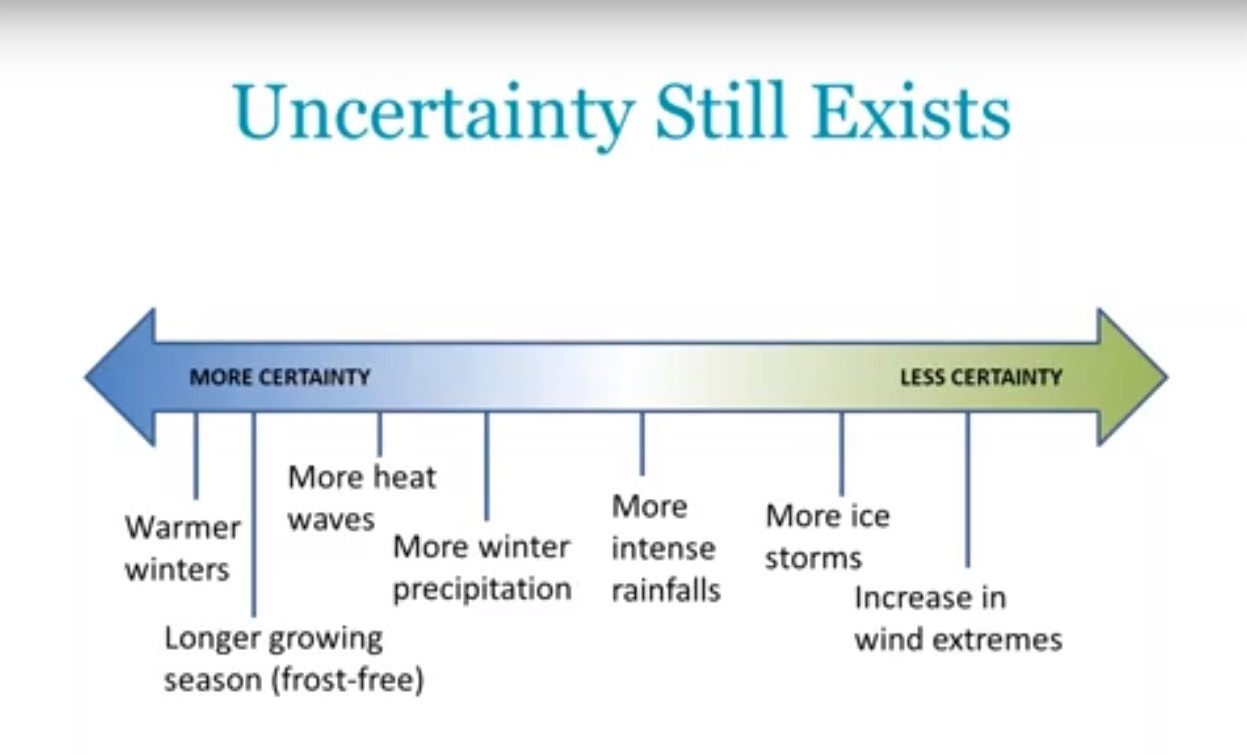General Membership permissions are required to access this content.
Many Canadian communities are experiencing more frequent and intense weather events — including extreme rainfall, ice storms and blizzards — which have resulted in more than $1 billion in catastrophic insurable losses each year since 2009. It is anticipated that both the magnitude and frequency of these events will continue to increase as our climate changes.
Ongoing efforts by Canadian provinces and municipalities aim to support actions to mitigate greenhouse gas (GHG) emissions and reduce the risks associated with extreme weather events. However, asset managers, climate experts and decision makers in both the public and private sectors need to work together to identify climate change risks at a local scale, communicate the uncertainties of climate change, and use available impact assessment tools that support decision making.
THIS WEBINAR EXPLORES:
- The first steps in developing an adaptation strategy (i.e. the vulnerability and risk assessment process).
- How to align climate adaptation strategies with other municipal and organizational priorities.
- The importance of generating adaptation strategies that address your exposure to climate hazards as well as system-specific and sensitive vulnerabilities.
LESSONS LEARNED INCLUDE:
- Identifying the factors that contribute to climate change risk, including system-specific vulnerabilities and compounding impacts.
- An overall understanding of and how to account for uncertainty in the adaptation planning process.
- How to improve your resiliency to climate change in the urban environment.
ABOUT THE PRESENTER:

Edmundo Fausto is a Project Manager with the Ontario Climate Consortium (OCC), where he manages the development and implementation of projects designed to answer critical research questions related to adaptation responses and policy. The projects in these programs include a variety of partnerships among universities and public and private sector organizations in Ontario to advance climate research and build a world-class climate industry in Ontario. Before joining OCC, he worked with a leading-edge energy management firm in downtown Toronto, and as project manager for an international, multidisciplinary research institute with a focus on climate, atmospheric and environmental sciences research.
Edmundo earned a Masters of Earth Science and a Bachelor of Science with a specialization in Biology from St. Francis Xavier University. While completing his masters, he undertook a detailed field investigation to study the climatic signal in the geothermal heat flow data from boreholes in the Atacama Desert of Chile, with the intent of characterizing ground surface temperature changes during the past five centuries.

